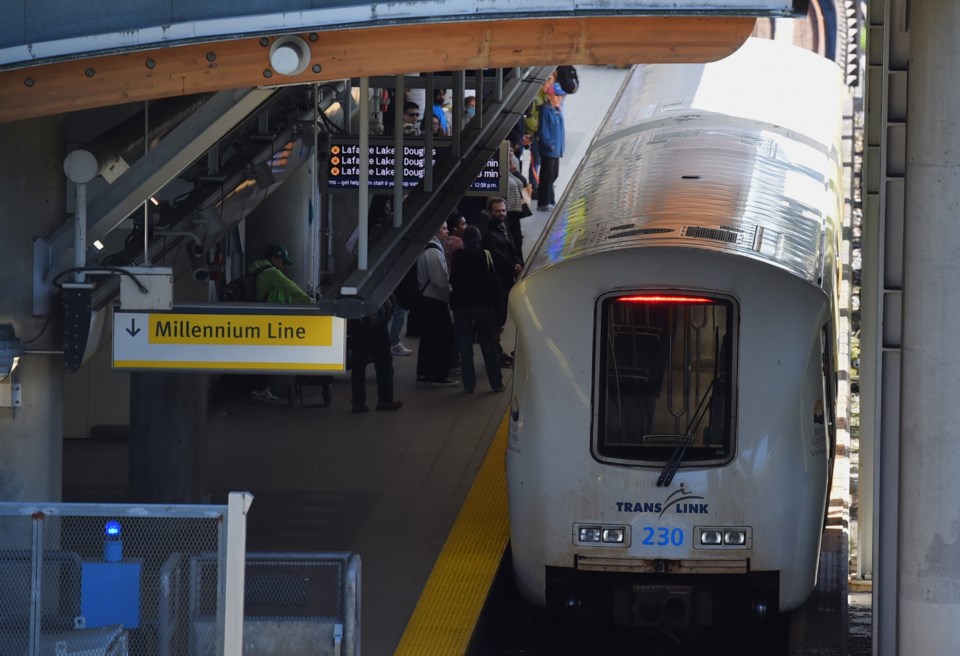The union representing Coast Mountain Bus Company (CMBC) supervisors may extend its picket lines from buses to include the SkyTrain.
Union members will return to work on Wednesday, Jan. 24 at 3 a.m. following the 48-hour transit supervisors' escalated job action, which included picketing at CMBC transit centres and a full shut down of SeaBus and bus service in Metro Vancouver.
All bus routes will resume operations on their usual schedules but the transit supervisors will continue their ban on overtime, which began Jan. 6.
The union says the overtime ban has affected operations because they often work outside of their regular hours to keep the system running smoothly.
TransLink refutes this position, arguing that they didn't see any effects from the ban on transit operations.
Now, the union, which hasn't budged on its position on wages and workload issues, is preparing to escalate its job action yet again.
CUPE 4500 says it will meet with the BC Labour Relations Board (BCLRB) on Monday, Jan. 29, to discuss expanding its job action to the SkyTrain at the start of the next working week.
It is unclear at this point which of Metro Vancouver's three SkyTrain lines would be affected, as the Expo and Millennium Lines are operated by British Columbia Rapid Transit Company Ltd. and the Canada Line by ProTrans BC on behalf of TransLink; the scope and location of the picketing is up to the union to determine and the BCLRB to approve.
University of British Columbia (UBC) professor emeritus Mark Thompson said the union was "being nice" by putting a timeframe on its job action. While the 48-hour suspension of bus service affects thousands of people across the region, most unions strike indefinitely.
Since it didn't reach an agreement with CMBC, the union has applied to picket an "ally's place of work." Under BC Law, an ally is a person (or organization) that assists "the employer in a lockout or in resisting a lawful strike," according to the BCLRB.
In this case, the ally would be the SkyTrain, which is operated by British Columbia Rapid Transit Company Ltd on behalf of TransLink.
Will the transit strike expand to the SkyTrain?
A union must issue a 72-hour notice ahead of a strike so its employer can make contingency plans. But TransLink won't have much recourse if the union expands its job action.
"This is not such a big deal that you wanna be shutting down the whole transit system," Thompson told V.I.A. "A union of 180 people shutting down thousands of workers."
The government has various tools at its disposal, including special mediators, but an agreement wasn't reached after a 20-hour bargaining session over the weekend.
During the bargaining process, the union is typically in one room and the employer in another, while the appointed mediator moves between the two, presenting their respective proposals to each party.
The mediator is tasked with narrowing down each of their top priorities and finding where they can make some concessions.
The individual, in this case, Vince Ready, works as a type of "shuttle" between the parties who don't meet face-to-face. Generally, they don't speak in person until it is time to shake hands, Thompson explained.
"If they get the right next week to picket the SkyTrain, it increases their bargaining power," he noted. If they do get the right to expand their job action, it might be enough to convince CMBC to change their offer, preventing a complete shutdown of the transportation network.
But at this point, it's unclear how the discussions will pan out.
CUPE 4500 told V.I.A. it doesn't have any further updates on talks or its next steps.
"Anything can happen," cautioned Thompson.



